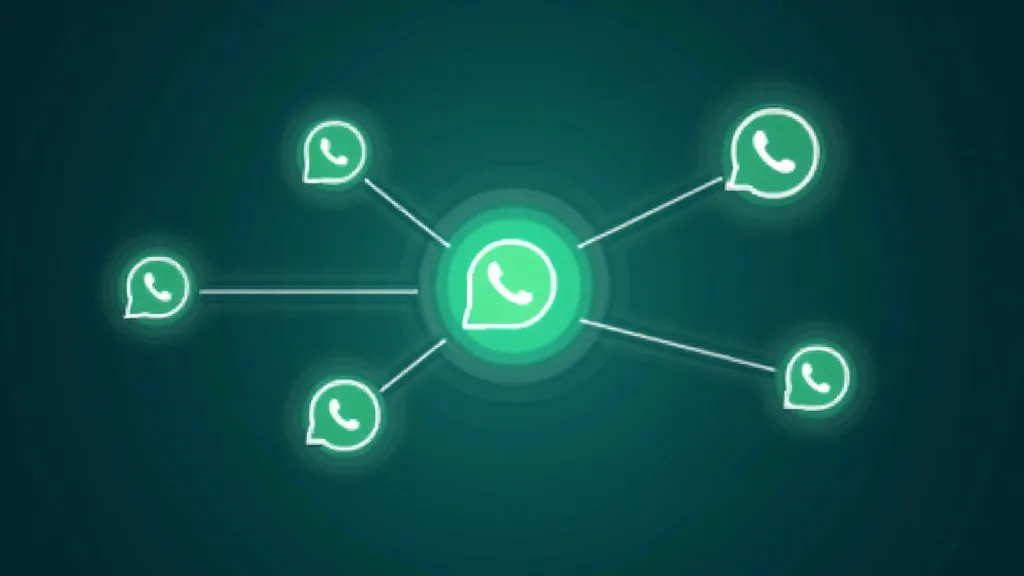Omnichannel WhatsApp is revolutionizing customer interaction by seamlessly integrating into sales, marketing, and support. This article delves into how businesses leverage WhatsApp's omnichannel capabilities to enhance customer experiences, its impact on different sectors, and top practices for its implementation. Discover the role of WhatsApp in amplifying communication strategies and streamlining operations.

In the rapidly evolving landscape of digital communication, the concept of an omnichannel strategy has taken a prominent stance. An omnichannel approach ensures that businesses provide a seamless customer experience across multiple platforms. Among the various tools available today, Omnichannel WhatsApp has emerged as a game-changer, ensuring connectivity and engagement on a platform familiar to billions globally. This evolution in customer engagement models is reshaping how brands interact with their consumers, making communication not just a necessity but an art of engagement.
WhatsApp, with its extensive user base, offers businesses a unique platform for interaction. Integrating it into an omnichannel strategy allows for consistent messaging, personalized customer experiences, and improved customer service. Omnichannel WhatsApp empowers companies to transcend traditional communication boundaries by interlinking various digital channels while maintaining a coherent brand voice and message. In essence, it offers a single dynamic avenue through which messages, promotions, and customer services can flow, thus enhancing relationship-building efforts significantly.
| Aspect | Omnichannel WhatsApp | Traditional Channels |
|---|---|---|
| Customer Reach | Global and scalable with real-time engagement | Localized and often asynchronous |
| Data Gathering | Comprehensive insights via integrated systems | Limited to channel-specific analytics |
| Message Consistency | Uniform across all digital touchpoints | Varied and sometimes inconsistent across platforms |
| Customer Experience | Seamless and personalized interaction journey | Fragmented service experience |
Various industries have successfully integrated WhatsApp into their omnichannel strategies. The retail sector, for instance, uses this tool to enhance customer service by offering product information and support. Real-time notifications about sales, promotions, and order statuses can be sent directly to customers via WhatsApp, creating a direct line of communication that facilitates customer loyalty and repeat purchases. In the realm of finance, WhatsApp is used to alert customers about their financial status and updates promptly. Financial institutions can send transaction alerts, fraud warnings, and even manage customer queries through a secure messaging platform, making financial interactions both efficient and user-friendly.
The healthcare sector is exploring WhatsApp for scheduling and reminders, improving patient interaction significantly. By enabling patients to book appointments and receive reminders via WhatsApp, healthcare providers can reduce no-shows and drive better patient engagement, ultimately leading to improved healthcare outcomes. Similarly, the travel industry leverages WhatsApp for communicating with clients about bookings and itinerary changes, assisting customers with real-time updates that enhance their travel experience.
While the benefits are notable, implementing an omnichannel strategy via WhatsApp does present challenges:
Q: What is Omnichannel WhatsApp?
A: Omnichannel WhatsApp refers to the integration of WhatsApp into a company's overall communication strategy, allowing for seamless interaction across multiple channels. This integration aims to enhance customer experience, engagement, and satisfaction.
Q: How does Omnichannel WhatsApp benefit businesses?
A: It helps provide a unified customer experience, allows personalized engagement, increases efficiency, and offers better data insights. Businesses leveraging this strategy can respond more effectively to customer inquiries and deliver a more cohesive brand message.
Q: What industries use Omnichannel WhatsApp effectively?
A: Retail, finance, and healthcare industries are among those utilizing it to improve customer interactions and services. These industries have reported higher engagement levels, increased customer satisfaction, and ultimately, improved business results.
Q: Is WhatsApp secure for business communications?
A: Yes, WhatsApp employs end-to-end encryption for messages, which means that messages can only be read by the sender and the receiver. However, businesses must implement additional policies for data protection and ensure compliance with data regulations.
Omnichannel WhatsApp is redefining how businesses communicate and engage with their audience by ensuring seamless, personalized interaction across a platform ubiquitous in personal and professional life. Its ease of access, combined with the familiarity of users, makes it a potent tool for evolving customer interactions. As businesses look to the future of digital communication, incorporating this tool into their strategies offers a competitive advantage that aligns with consumer expectations for immediate, consistent, and personalized communication experiences. As the market continues to evolve, it will be essential for brands to adapt and innovate their strategies to leverage the many benefits of omnichannel communication effectively.
Failure to keep pace with the rapid developments in communication technologies can result in lost opportunities and diminished customer satisfaction. Future-oriented businesses not only need to embrace tools like Omnichannel WhatsApp but also to cultivate a culture of continuous adaptation and responsiveness to changing customer needs. The businesses that excel will be those that prioritize not just technology integration but also genuine, empathetic engagement with their customers, thereby transforming interactions into long-lasting relationships.